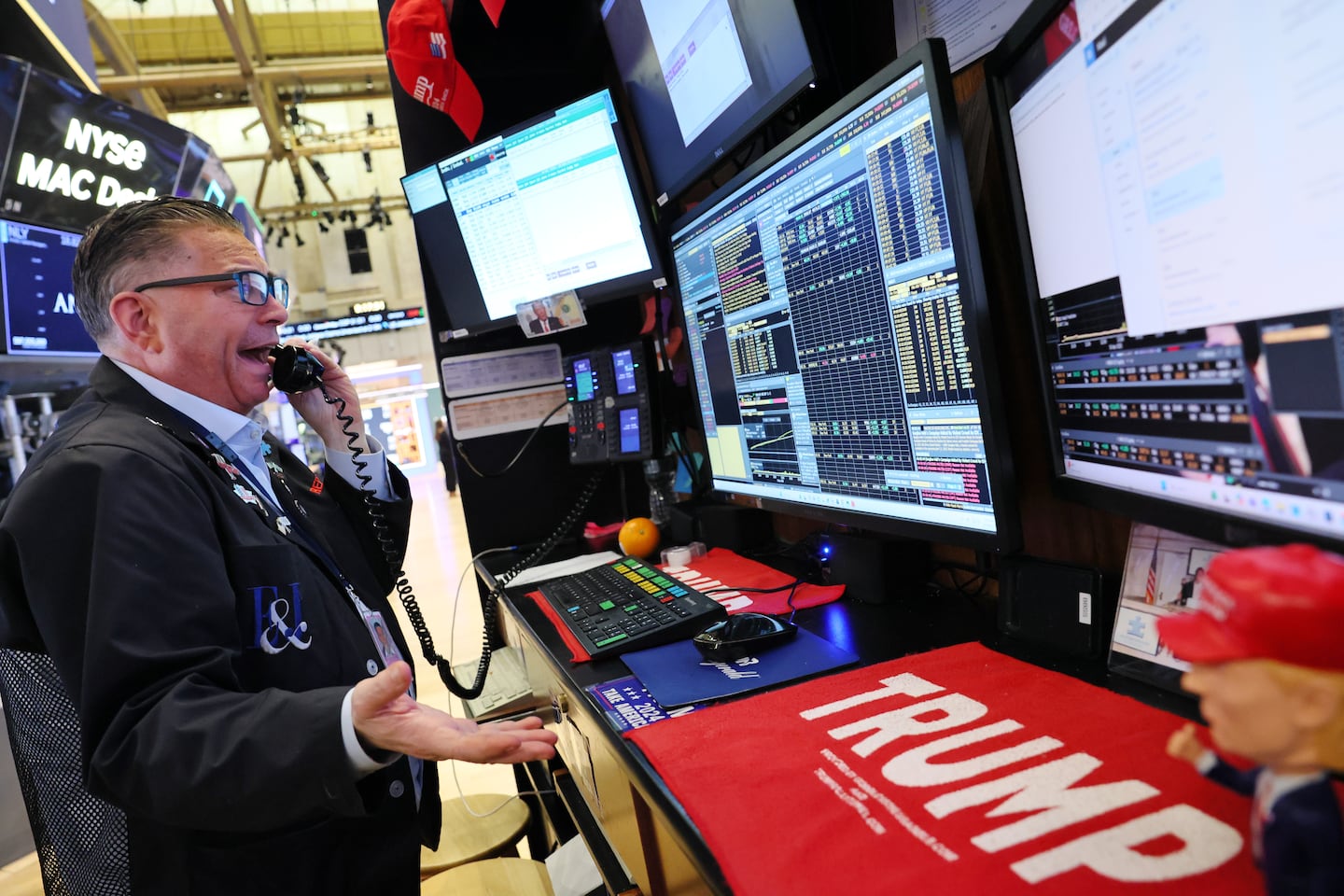“People don’t know what to do. They’re frozen,” said Jimmy Becker, a financial planner from Waltham who founded the company Financially Speaking. Becker said he doesn’t sense panic among his clients, but he has seen plenty of “anxiety or discomfort with no sense of what to do.”
This week’s roller-coaster ride on the stock market has stoked that anxiety, which is heightened for many people hurt in recent years by the COVID-related downturn. Although stocks soared Wednesday after Trump paused tariffs on most countries, with the exception of China, they plunged again on Thursday and rebounded just slightly by early Friday morning.
Amid all the turmoil, Becker said, he could not predict with confidence where the market and economy are headed.
“My best guess about what we’ll see has nothing to do about prognosticating about the markets. It’s prognosticating about Trump,” Becker said. “I don’t have a view for you. It’s really driven by the whims of this one guy.”
Mimi Boxwell, 65, of Greenland, N.H., is a retired financial planner who shares that uncertainty. She and her husband, who also is retired, plan to continue taking money out of their 401(k) and IRA accounts because of the market’s fluctuations.
“I don’t trust our government anymore,” Boxwell said. “I’m afraid if I delay … that it’ll come back to bite me. I can just imagine somebody saying, ‘Well, if you didn’t need it then, you must not need it now.‘”
Ruth Villard of Dorchester, who retired from a medical billing department, said she’s worried about disruptions to her Social Security payments.
“That’s my source of income, my rental insurance, my bills, my cell phone, rent. … Everything is coming out of it,” she said.
Villard, who also has a 401(k), is wondering whether she should withdraw money from those savings because of the gyrating stock market.
“My advisor said just let it sit for right now, but I’m seriously thinking whether I should remove that and put it in some other kind of account,” she said.
Visitors to the Social Security office at the Thomas P. O’Neill Jr. Federal Building in Boston this week also expressed concerns.
Jennifer Bridges of Boston said she fears that the Social Security benefits her parents collect will be revoked arbitrarily without cause, given new policies such as performing anti-fraud checks on claims filed over the phone.
“They rely on it, and for them, it’s paycheck to paycheck,” Bridges said.
Another Boston woman, who did not wish to be named for fear of government retaliation, came to the office to collect her Social Security check in person because of worries she would not be able to claim it later. Others who didn’t speak on the record because they also feared government retaliation expressed concerns about being cut off from benefits in the future.
Anxiety is a natural reaction in times of economic uncertainty, said Jack Heintzelman, a partner at the financial planners Boston Wealth Strategies.
“We’ve seen that over time regardless of what the uncertainty is,” Heintzelman said. “We had COVID in 2020; we had a similar trade war with China in 2018. You’ve seen uncertainty in the past, and when you’re in it, people get extremely nervous.”
Accounting for market changes is a key component of retirement planning, Heintzelman said. That includes investing in a mix of both stocks and bonds, keeping a more conservative portfolio, and having a withdrawal strategy, he added. For people who may not have a plan, the goal should still be to have as conservative of a portfolio as possible, Heintzelman said.
“The simple advice I’ve been giving clients is to focus on the things you can control. Those are incomes and expenses,” he added.
Becker said his clients are not panicking yet because many of them sense that the current volatility differs from past downturns. This one, he said, is self-inflicted and not linked to underlying economic problems.
Laura Quinby, associate director of employee benefits and labor markets at the Center for Retirement Research at Boston College, said she expects that people will react the way they have in the past.
“There’s just a lot of uncertainty going on right now about exactly what we’re dealing with, whether in terms of the stock market and people’s 401(k), but also in terms of future inflation, and what the labor market’s going to look like and the broader economy,” she said.
During the Great Recession of 2007-09, Quinby said, there was a “big trend” of people who wanted to delay retirement but did not because of the concurrent labor downturn. During COVID, she said, many people took a wait-and-see attitude, leaving their jobs but not identifying as retired in surveys or claiming Social Security.
Delaying retirement is one of the most powerful tools people have to improve retirement security. Quinby said. To the extent that individuals can delay withdrawing from their 401(k) and locking in losses, “that’s obviously a good thing,” she added.
Becker, who began his career as a Wall Street bond trader, said he warns clients not to try to time the stock market in unpredictable times such as these — selling and buying stocks based on market fluctuations — “because you’ll have to be right twice, and that’s really hard for mere mortals to do.”
In the end, Becker said, “you have to put your money somewhere, so if you unload it from the stock market, you can put it in the bond market or some version of cash.”
Brian MacQuarrie can be reached at brian.macquarrie@globe.com. Emily Spatz can be reached at emily.spatz@globe.com. Follow her on X @emilymspatz.


